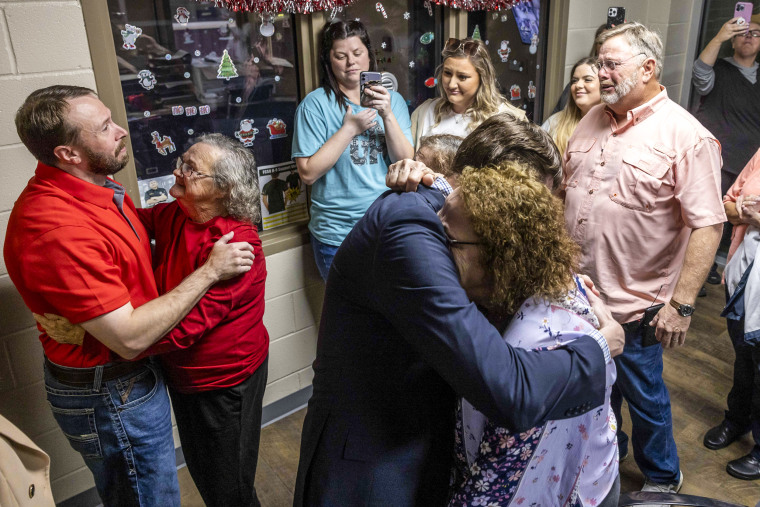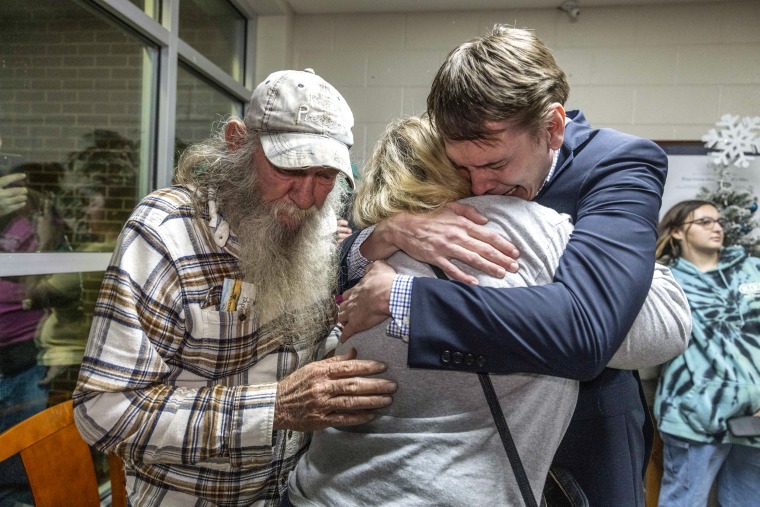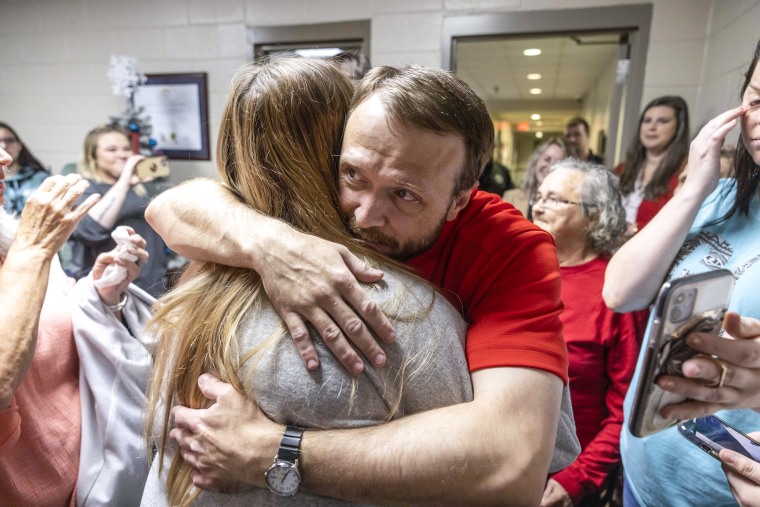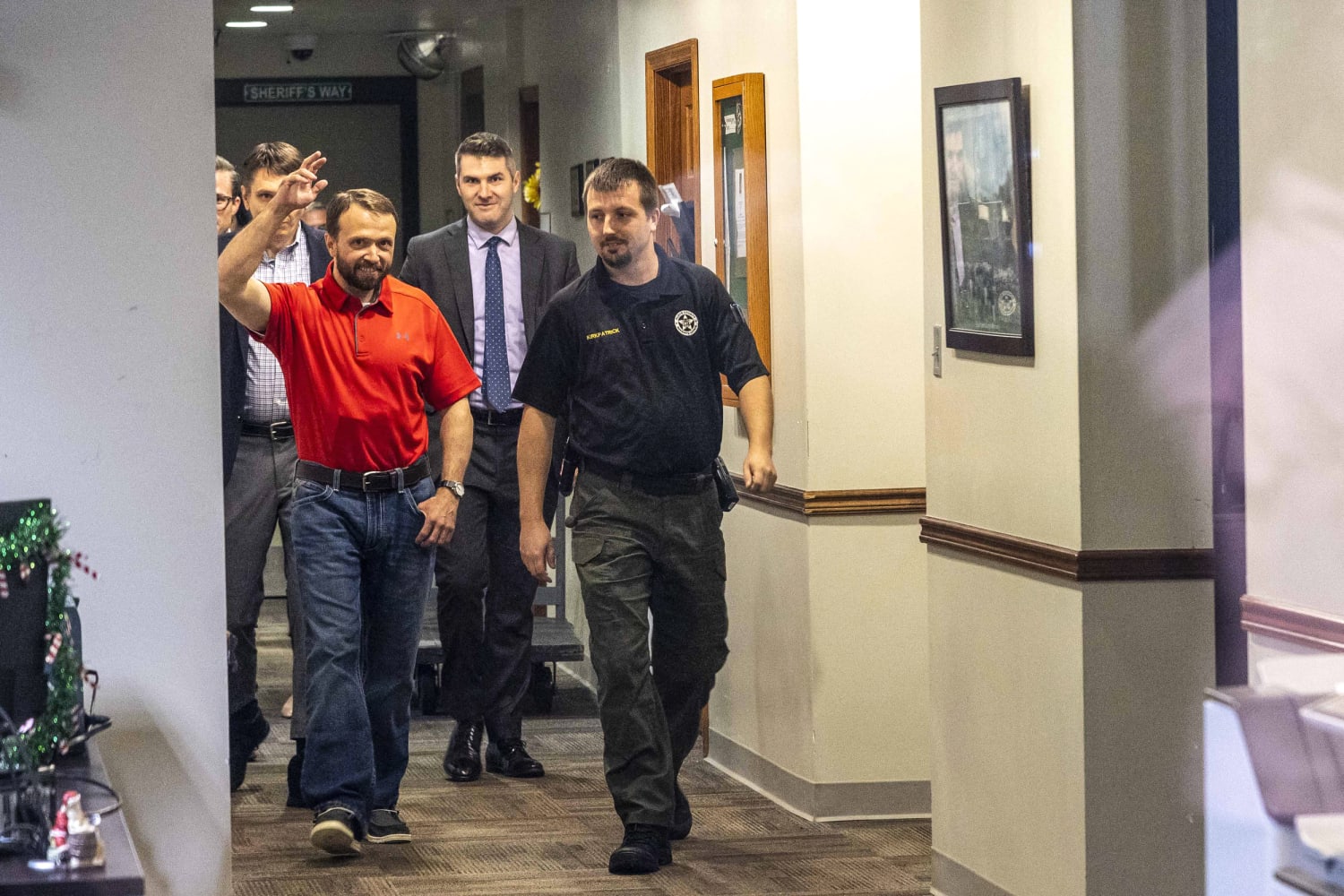Two Georgia men who spent 25 years in prison were freed last week after their murder convictions were overturned when podcasters and their attorneys unearthed new evidence proving their innocence.
Darrell Lee Clark and Cain Joshua Storey were teens when they went to trial in January 1998 for the shooting death of their friend 15-year-old Brian Bowling at a party in 1996, according to a statement from the nonprofit Georgia Innocence Project also known as GIP.Floyd County police at first believed Storey’s account of the shooting, which was he was in the room with Bowling when he died in accident playing Russian Roulette. Moments before the fatal gunshot, Bowling was on the phone with his girlfriend and had told her that he was playing Russian Roulette with a gun brought over by his best friend, Storey, the GIP said.
Storey was initially charged with manslaughter for providing his best friend with the weapon, according to the innocence project.

However, after the urging of Bowling’s distraught family, the GIP said, days after speaking to a party host, police upgraded Storey’s charge to murder and also connected Clark to the case as a co-defendant, despite the fact that he had a corroborated alibi.
State prosecutors argued the two teens had conspired to kill Bowling in an act of revenge, the GIP said.
“You never think something like that is going to happen to you,” Clark said in the statement. “Never would I have thought I would spend more than half my life in prison, especially for something I didn’t do. I’m just glad the truth finally came to light after 25 years. I’m so thankful for the Georgia Innocence Project and Proof Podcast for what they did. Without them, I would still be in prison.”

Clark and Storey were released from prison Thursday after motions were filed on their behalf for a new trial, their attorneys said. The Rome Judicial Circuit District Attorney’s Office agreed that Clark’s conviction should be overturned and dismissed all charges against Clark, exonerating him of Bowling’s death, the GIP said.
“We are elated, thrilled that he is finally home after all this time. It’s even better that it’s in time for the holidays,” Clark’s attorney Meagan Hurley told NBC News. “Twenty-five years is an incredibly long time to spend incarcerated for a crime you didn’t commit.”
Hurley credited the Bowlings, who eventually changed their mind about how their loved one died.
“They went into this process with an open mind. They were willing to hear out what the podcasters had to say, and eventually, the attorneys,” Hurley said. “And sort of re-evaluated what the evidence actually was and came to the conclusion that, frankly, the first time around, everybody got it wrong.”
A motion was filed for Storey arguing he was innocent, his attorney, Luke Martin, told NBC News on Monday.
Storey pleaded guilty to involuntary manslaughter and a 10-year sentence of time served, Martin said. But because it was his first offense, Martin’s conviction was immediately wiped from the record, Martin said.

“He’s enjoying getting caught back up on the life that he missed,” Martin said. “He does feel vindicated. He’s been saying that he is innocent. He’s been telling everybody the truth of what happened for 25 years.”
The state’s case against Clark and Storey largely hinged on two key witnesses, according to the GIP. Podcasters Susan Simpson and Jacinda Davis, behind the podcast “Proof,” began interviewing witnesses related to the case in late 2021.
The podcasters could not be immediately reached Monday.
Their investigation found the party hostess, a key witness, was coerced by police to give false testimony about statements Clark and Storey allegedly made. The podcasters also found that a hearing-impaired man, who was also a key witness, had seen an unrelated but factually similar shooting in 1976 and was unable to separate the facts from that case to Bowling’s 1996 death, according to the GIP. It was learned that the hearing-impaired man never saw Clark run through Bowling’s yard when Bowling was shot, which was the prosecution’s theory.

Martin said, for whatever reason, police back then were not interested in learning the truth of how Bowling died.
“An autopsy in the case would have solved it, yet they refused to get an autopsy,” Martin said. “That autopsy would have shown this was a self-inflicted gunshot wound.”
According to the GIP, to support its theory of intentional homicide, state prosecutors relied on the testimony of the coroner, who was not trained as a medical doctor.
The coroner testified that his “gut feeling” told him that the gunshot wound could not have been self-inflicted because it was not a close-contact wound, according to the GIP.
No one with the Floyd County Police Department could be immediately reached for comment Monday.
Madelyn Urabe contributed.
Source: | This article originally belongs to Nbcnews.com









